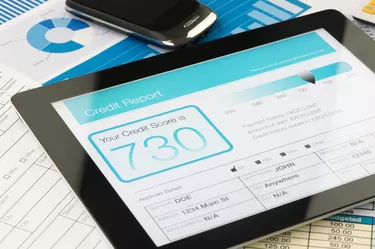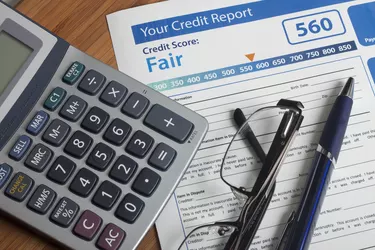Understanding your credit report is an important part of managing your personal finances. Although credit reports can seem confusing at times, the different alphanumeric codes represent significant aspects of your financial situation, some of which, like code G or “collections,” could have detrimental effects if disregarded.
The term “Grid Code G” might seem like a cryptic message, but it carries significant weight in the realm of credit reporting. This code, often found on your credit report, indicates the presence of a collection account, which can negatively impact your credit score. Let’s delve deeper into understanding what Grid Code G signifies and how it affects your financial standing.
What Does Grid Code G Mean?
Grid Code G, also known as “Collection Account,” appears on your credit report when a debt has gone unpaid for an extended period. This typically happens when you miss several payments on a credit card, loan, or other financial obligation. The original creditor then sells the debt to a collection agency, which attempts to recover the outstanding amount.
When a collection account is added to your credit report, it’s assigned a Grid Code G. This code serves as a red flag to potential lenders, indicating that you have a history of unpaid debts. As a result, your credit score can take a significant hit, making it more challenging to secure loans, credit cards, or even employment opportunities
How Does Grid Code G Affect Your Credit Score?
The impact of Grid Code G on your credit score depends on several factors including:
- The severity of the delinquency: The longer you’ve been delinquent on the debt, the more significant the impact on your score.
- The amount of the debt: Larger debts tend to have a more substantial negative impact compared to smaller ones.
- Your overall credit history: If you have a good credit history with a high score, the impact of a single collection account might be less severe. However, if your credit history is already shaky, Grid Code G can further damage your score.
Generally, a collection account can lower your credit score by 50 to 100 points or more depending on the factors mentioned above. This can make it difficult to qualify for favorable interest rates on loans or even get approved for credit cards.
What Can You Do About Grid Code G?
If you find a Grid Code G on your credit report, don’t panic. You can take the following actions to lessen its effects and raise your credit score:
- Contact the collection agency: Reach out to the collection agency and negotiate a payment plan. Settling the debt can remove the collection account from your credit report, significantly improving your score.
- Dispute the collection account: If you believe the collection account is inaccurate or shouldn’t be on your report, you can dispute it with the credit bureaus.
- Improve your credit habits: Focus on making timely payments on all your bills, keeping your credit utilization low, and avoiding opening new credit accounts unnecessarily.
Remember, repairing your credit score takes time and effort. By taking proactive steps to address the Grid Code G and improve your credit habits, you can gradually rebuild your financial standing and achieve your financial goals.
Additional Resources
- Experian: https://www.experian.com/blogs/ask-experian/what-is-a-collection-account/
- Equifax: https://www.equifax.com/personal/education/credit/report/collection-accounts/
- TransUnion: https://www.transunion.com/credit-help/collection-accounts
By understanding the implications of Grid Code G and taking appropriate action, you can navigate this credit challenge and work towards a brighter financial future.
Cleaning Up a Code G
Consumer payment histories remain on a credit report for two years. Contact your lender and credit bureau right away if you are aware that all of your accounts are paid in full and the code G was inserted in error.
Your credit rating will drop significantly if an active collection notice remains on your report.

Consumer Payment History Codes
Video of the Day
An Experian credit report’s “consumer payment history” section contains a code G, which indicates that at least one account is in collections. This code is used when a loan, which could be a line of credit, auto loan, or credit card, is past due to the point where the lender felt compelled to give the file to a collection agency.

Video of the Day
Remove This Collection Every Time! | How I Remove This Collection Agency
FAQ
What does grid code 2 mean on credit report?
Do I need a “grid code G” Collection on my credit report?
You don’t want any collections on your credit report. It makes you look less trustworthy to lenders and brings your score down. In order to clean up a “Grid Code G” collection, keep the following in mind: Consumer history is kept on credit reports for two years.
What does “Grid Code G” MEAN?
To avoid this, read on as we unpack just what this remark means for you and your credit score. “Grid Code G” is the code used to let potential lenders know that one, or more of your accounts are in default. What Does A “Grid Code G Collection” Mean For Me?
How do I clean up a “grid code G” collection?
In order to clean up a “Grid Code G” collection, keep the following in mind: Consumer history is kept on credit reports for two years. So, if your collection is coming close to the two-year mark, you may not want to pay it in full. However, your debt can easily resurface in other ways.
How do I request GC services to remove my collection account?
To request this, you need to send GC Services a goodwill deletion letter explaining the reason for your late payment and why you want the agency to remove its collections account. If your payments are usually on time and you ask nicely, there’s a chance that GC Services will grant your request.


